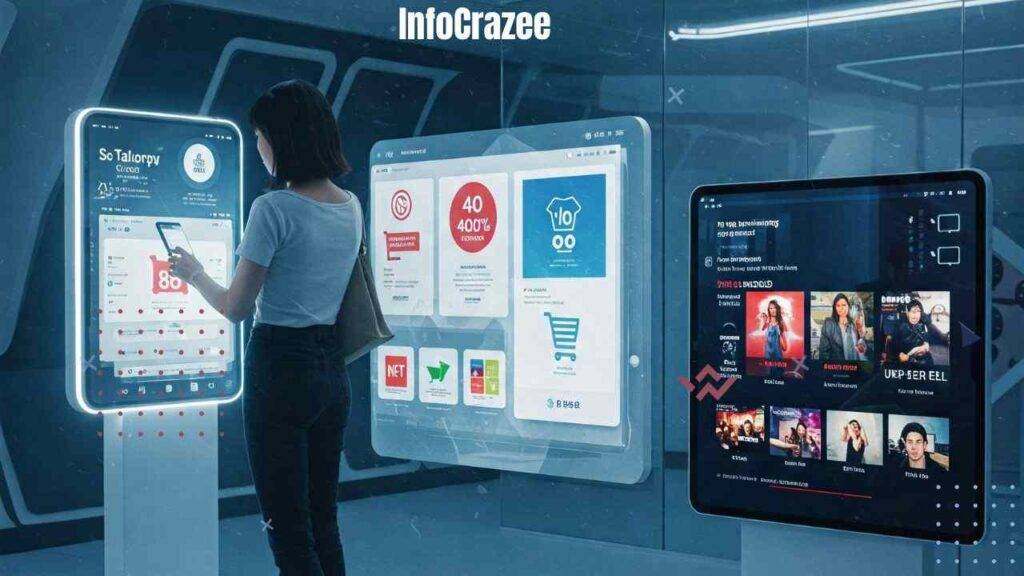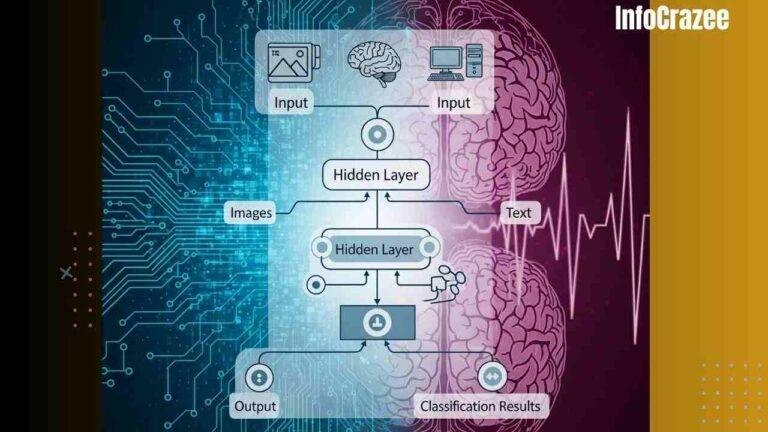AI and Big Data: Real Ways They are Changing How We Live and Work
You’ve probably heard a lot about Artificial Intelligence (AI) and Big Data lately. From smart assistants like Siri to personalized recommendations on Netflix, it’s clear that these technologies are already shaping our daily lives. But how exactly are they changing the way we work, live, and interact with the world around us? Let’s take a closer look!
What Is AI and Big Data, Anyway?
Before we dive into how they’re changing things, let’s break down the basics:
- AI (Artificial Intelligence): This refers to machines or software that can think, learn, and make decisions like humans. It’s about teaching computers to recognize patterns, solve problems, and even improve over time.
- Big Data: Simply put, this is an enormous amount of information that’s too complex for traditional data processing tools. Think about all the data companies collect from social media, online shopping, sensors in cities, and more. Big data helps us make sense of it all.
How AI and Big Data Are Changing Our Lives
1. Smarter Shopping Experiences
Ever noticed how your favorite online store seems to always know what you’re looking for? Or how Netflix magically suggests the perfect movie based on your viewing history?

AI and Big Data work together to create personalized shopping and entertainment experiences. For example:
- Recommendation systems: Platforms like Amazon use AI to track your browsing habits and recommend products you might like, based on what others with similar tastes have bought.
- Personalized marketing: Retailers can now create ads and offers specifically tailored to your interests, thanks to insights from Big Data.
2. Healthier Lives with Predictive Medicine
AI is making healthcare more personalized and efficient. With the help of Big Data, doctors and researchers can predict health trends, make better diagnoses, and create treatments based on individual patient data.
For example:
- Predicting diseases: AI models can analyze data from millions of patients to predict who might be at risk for conditions like diabetes or heart disease. This allows for earlier intervention, often before symptoms appear.
- Personalized treatments: Big Data gives doctors access to a huge pool of information, allowing them to customize treatment plans for patients based on their specific needs.
3. Revolutionizing How We Work
AI and Big Data are making our work lives more efficient and smarter. Whether you’re a freelancer or working in a big company, here’s how things are changing:

- Automating repetitive tasks: AI is taking over mundane tasks, like scheduling, data entry, and customer service (think chatbots). This gives us more time for creative and strategic work.
- Better decision-making: Big Data helps businesses make data-driven decisions. For example, companies are using data analytics to understand customer preferences, optimize their supply chains, and improve employee performance.
- Remote work efficiency: With AI tools like project management apps and virtual assistants, managing remote teams and organizing projects is easier than ever.
4. Smart Cities Powered by AI and Big Data
Have you ever thought about how AI and Big Data could improve the way cities work? From smart traffic lights to better public transportation systems, these technologies are making cities more efficient and livable.

For example:
- Traffic management: In some cities, AI is used to monitor traffic patterns in real-time and adjust traffic light timings accordingly. This helps reduce congestion and improve the flow of traffic.
- Public safety: Big Data can be analyzed to identify crime patterns, allowing cities to deploy resources more effectively to areas that need attention.
What Does This Mean for You?
So, what do these changes mean for your daily life?
- Increased convenience: Thanks to AI and Big Data, your shopping, healthcare, and even work tasks are becoming more personalized and efficient.
- More opportunities: These technologies are creating new job roles, like data scientists, AI specialists, and even positions in healthcare that didn’t exist before.
- Improved decision-making: Whether you’re making personal or professional choices, you’ll have better insights thanks to the power of Big Data.
While these technologies are still evolving, it’s clear that they’re changing the world—and our lives—in ways we couldn’t have imagined just a few years ago.
What’s Next?
AI and Big Data are still in their early stages, but they’re growing rapidly. As more industries adopt these technologies, we can expect even more changes in how we live and work. From more efficient public services to personalized education, the possibilities are endless.
FAQs About AI and Big Data
1. How is AI different from Big Data?
AI is about creating intelligent systems that can perform tasks like humans, while Big Data refers to large sets of data that can be analyzed for insights. Together, they help businesses make smarter decisions and improve services.
2. Will AI replace jobs?
While AI will automate some tasks, it will also create new opportunities. People will still be needed to manage, improve, and work alongside AI systems. The key is adapting and learning new skills to work with these technologies.
3. How does Big Data impact privacy?
Big Data does raise privacy concerns, especially when it comes to how personal information is collected and used. Companies and governments need to handle data responsibly and ensure that privacy laws are followed to protect individuals.
Final Thoughts
AI and Big Data are no longer just buzzwords—they’re here, and they’re transforming how we live, work, and interact. While there are still challenges to navigate, these technologies have the potential to improve our lives in so many ways. Whether it’s getting personalized health care or enjoying smarter, more efficient cities, the future looks brighter thanks to AI and Big Data.
Stay tuned to infocrazee, as we continue to explore the latest trends in technology and how they’re shaping our world!






